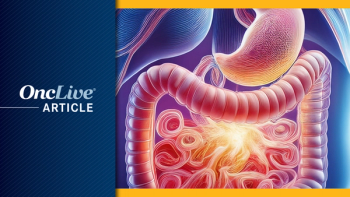
Dr. Hidalgo Medina on Promising Research in Pancreatic Cancer
Manuel Hidalgo Medina, MD, PhD, discusses some of the exciting pancreatic cancer research presented at the 2020 ACCR Virtual Annual Meeting I.
We had the pleasure of speaking with Manuel Hidalgo Medina, MD, PhD, chief of the Division of Hematology and Medical Oncology of Weill Cornell Medicine and NewYork-Presbyterian Hospital, to discuss some of the exciting research he presented at the
In the trial, investigators generated PDOs from patients with pancreatic cancer under real-world conditions to evaluate drug sensitivity against PDOs and correlate these data with clinical outcomes. Investigators estimated that a PDO AUC value of <1.66 yields a >99% probability of disease control from a regimen that contains a certain drug. They also found that if all drugs in a regimen had an AUC of >2.75 there is a >80% probability of accurately predicting resistance. In a patient with stage IV pancreatic ductal adenocarcinoma with a KRAS mutation and ERBB2 amplification, the investigators were able to show the potential of PDO testing to tailor treatment. Specifically, the patient experienced disease control with FOLFIRINOX, which was held for toxicity. The PDO showed resistance to oxaliplatin and subsequently, the patient experienced an extended period of disease control with regimens that did not control the drug.
It is anticipated that this approach will be explored in future clinical trials to prospectively inform treatment selection for this patient population, said Dr. Hildago.
Additionally, Dr. Hidalgo also presented results from a phase 1b study which examined the use of palbociclib plus nab-paclitaxel in patients with metastatic adenocarcinoma of the pancreas (PDAC). In preclinical models, the combination was more effective than either agent alone and similar to that of palbociclib nab-paclitaxel plus gemcitabine. In the trial, investigators evaluated the safety, pharmacokinetics, pharmacodynamics, preliminary efficacy, and maximum tolerated dose of the doublet in patients with PDAC. Although the combination was found to be tolerable, with adverse events as expected based on the profiles of the single agents, the regimen did not meet the prespecified efficacy threshold, and thus, will not move forward.
In our exclusive interview, Dr. Hidalgo expanded on these studies and highlighted other exciting research being done in pancreatic cancer.



































